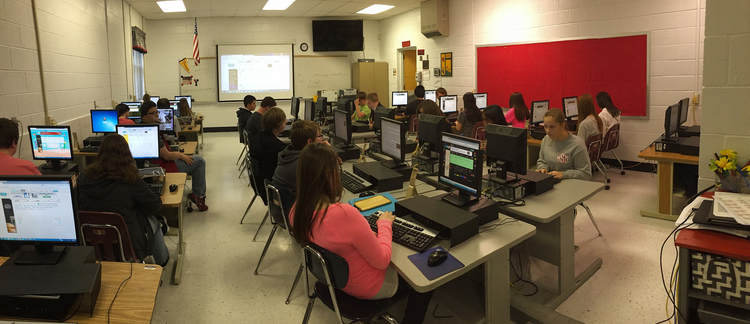Editorial: New Form of Scholarship and Open Access Journals
Betül C. Czerkawski
Editor, ITET
Eugene W. Lyman
Managing Editor, ITET
Since the late 1960's scholars have taken advantage of computerized systems to access scholarly resources and tools. Starting with ARPANET and NSFNET online resource grew continuously, encompassing other services and protocols such as USENET, FidoNET and BITNET (Abbate, 1999, pp. 202-203). as well as private data networks such as LexisNexis. As the World Wide Web exploded in popularity and became largely synonymous (at least in the popular imagination) with the Internet as a whole, researchers found it increasingly difficult to sift valid information out of a sea of online discussions, mailing lists and personal blogs. Fortunately, this situation has begun to change and substantial Web-based content is now available to scholars in all fields. As Borgman (2007) points out, "the Internet lies at the core of an advanced scholarly information infrastructure to facilitate distributed, data- and information-intensive collaborative research" (p. xvii).
As we publish our third issue of ITET, we are aware of this increasing scholarly reliance on Web-based content. "Open Science" takes on a new meaning as more and more "open-access" resources become available to the worldwide community of scholars. But this raises an as-yet unresolved question: how does this new explosion of online resources affect scholarship?
If you have attended any major educational technology conference in the last few years you may have noticed a significant drop in attendance compared to prior years. This stems from a variety of causes: recent budget cuts, decreased institutional support for faculty and graduate student travel expenses, and new administrative models based on private business practices. But are these the only reasons?
An increasing number of conferences accept virtual participation, which requires only online submission of scholarly work. Many also offer live blogs that provide constant updates of conference events. These are new forms of participation that were not available even a few years ago. While virtual conference participation is a welcome development, the expansion of high-quality open access journals and libraries is even more striking.
In some cases print journals are losing their 'first tier' status to their online peers. This is largely a by-product of cycle time: It can take almost two years for a research study submitted to a print journal to make it through the peer-review process, revisions and finally, the printing process itself. The same sequence can take less than a year for an online journal. Additionally, the content of online journals can be made available to students and faculty at almost any time and at a distance –greatly reducing the prior (time-consuming) process of repeated trips to the university library.
Open access journals also open the door to scholarship that previously had difficulty finding an audience. Graduate students and independent scholars now have access to publishing platforms that are usually not less –and quite often equal, or even superior– in quality to traditional print outlets. Graduate students are no longer encapsulated in their departments and faculty conversations can extend outside the realm of annual conferences. A wider range of research topics and formats is becoming available to a larger audience at greater speed and lower cost.
A major shift in academic publishing is well under way, but it will be some time before the effects of this change become clear. Online publication platforms and open access journals may lead to modes of scholarship that were previously not possible. Or, simple convenience may overwhelm quality. The course ahead is up to all of us.
We hope you enjoy reading our new issue!
References
Abbate, J. (1999) Inventing the Internet. Cambridge, MA: The MIT Press.
Borgman, C. L. (2007) Scholarship in the digital age: Information, infrastructure and the internet. Cambridge, MA: The MIT Press.

